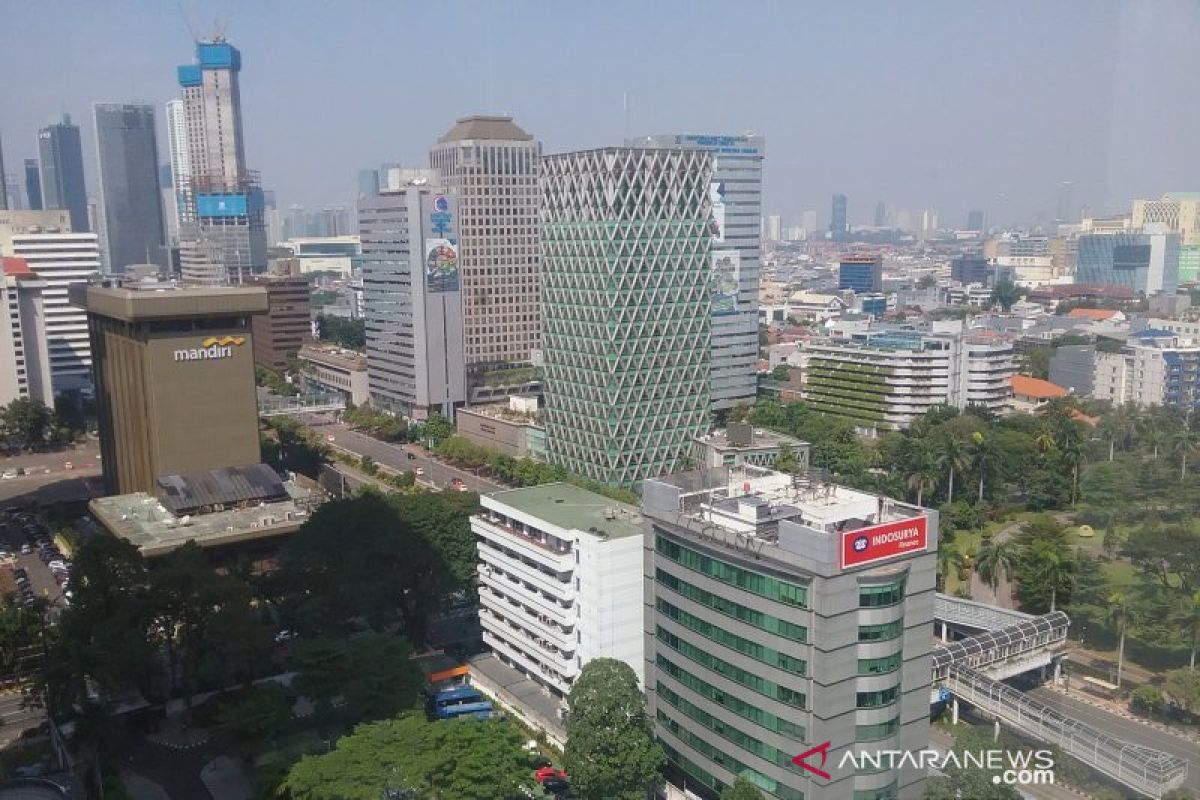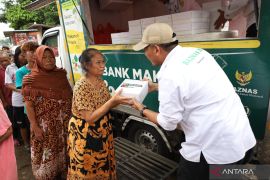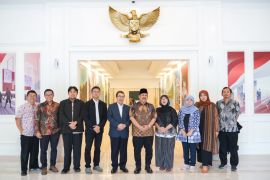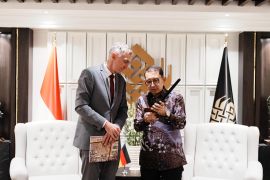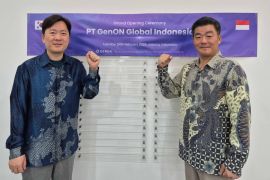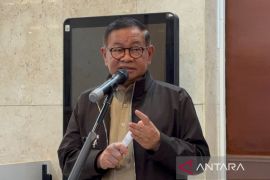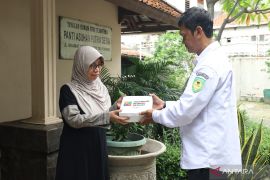However, there has been cause for cheer thanks to news of Jakarta finally managing to bring the infection relatively under control. According to a UI report, the effective reproductive number (Rt) for the city has slid to 0.98 in June this year from 4 in March.
"(I have just received) a report from the team of the Public Health Faculty of the University of Indonesia (UI) that shows that during the past two weeks, under the transition period, the outbreak has been brought under control," Jakarta Governor Anies Baswedan remarked during a modest commemoration ceremony at the city hall on June 22, 2020.
Home to a population of around 11 million, Jakarta emerged as the country's first COVID-19 epicenter, following President Joko Widodo's announcement of Indonesia's first confirmed cases on March 2, 2020.
On March 16, prior to the government’s enactment of large-scale social distancing measures, Jakarta recorded its highest Rt of 4, while the threshold is 1, based on the assumption that every 100 people infected with COVID-19 would transmit the disease to 400 others.
On April 10 this year, the figure dropped to 1.5, and currently, it has dipped below one, thanks to the hard work put in by all Jakartans, Baswedan said.
"This is such a present for Jakarta's people as we celebrate the anniversary, since the pandemic that was rampant is currently being brought under control," he remarked.
On June 24, 2020, Jakarta added 195 fresh COVID-19 cases, bringing its total count of confirmed cases so far to 10,472.
The capital city registered 112 recoveries and three deaths the previous day, Fify Mulyani, head of Jakarta's Public Health Office, said.
The metropolitan city has so far registered 5,434 recoveries, while the death toll has been recorded at 631, she noted.
For this year's anniversary, the provincial government chose the theme of "Jakarta Tangguh" (Tough Jakarta) as it mirrors the eagerness and perseverance of the city’s residents to fight the pandemic.
The atmosphere at celebrations to mark the capital city's anniversary was definitely different from last year’s Jakarnaval 2019, a traditional arts and culture parade that showcased local and foreign traditional arts performances.
The Jakarnaval 2019 involved around 3,500 artists grouped into 65 contingents, representing Jakarta's indigenous Betawi community,Yogyakarta, Bima (West Nusa Tenggara), Papua, South Korea, Morocco, India, and China, among others.
"The atmosphere at celebrations for Jakarta's anniversary has been different this time. Jakarta, Indonesia, and even the world, are facing the COVID-19 pandemic ordeal," Baswedan noted.
However, he said, COVID-19 is not the first pandemic to have struck Jakarta: the city also witnessed the Spanish flu epidemic in 1918.
"During that time, we had managed to get over it. This city has endured various challenges of disasters and successive ordeals, such as natural disasters, in addition to health, economic, and social crises. However, Jakarta has always been able to deal with them," he pointed out.
"Now, with the permission of Allah, we will once again unitedly demonstrate that Jakarta can face this grave ordeal head on," he stated.
The former education and culture minister conceded the fact that development in the city has been delayed, though rescue efforts for residents have been ramped up.
Moreover, with appeals to practice physical distancing, solidarity has also grown, according to Baswedan.
The residents of Jakarta, including health workers, teachers, security officers, religious leaders, and all sections of the society, should unite to help generate a broader understanding among citizens, he stated.
The governor said he believes Jakarta's residents are disciplined enough to follow the health protocols and break the chain of COVID-19 transmission.
Jakarta imposed Large-Scale Social Distancing (PSBB) measures from April, 2020 until June 3. Starting from June 4 until late June, the capital city has been implementing a transitional PSBB ahead of ushering in the new normal.
During the transitional period, several malls and amusement centers and tourist attractions have been allowed to reopen under stringent health protocols, which prescribe measures such as maintaining physical distance, wearing face masks, washing hands frequently, and spraying disinfectants.
Those are in accordance with the four principles that need to be upheld to ensure the success of the transitional large-scale social distancing measures this month, the Jakarta Governor said.
"There are four principles that must be upheld and remembered in any activity during this period of transition. Insya Allah (God Willing), we would be able to further control the spread of COVID-19 transmission," he averred.
First, only healthy people must leave home, and those who are unwell must remain at home, he said. Second, during outdoor activities, people must remember to wear masks.
Third, people must follow physical distancing during any activity and any interaction, maintaining a minimum distance of one meter from other people.
Fourth, people must analyze the situation on the ground. If half of a room or space has been filled, they must not enter it, because places are currently allowed to use only 50 percent of their capacity.
"Hence, in the current transition period, it's better and more important to stay at home because its (COVID-19 pandemic) not over yet. If you really want to go outside, follow the health protocols in a disciplined manner," he advised.
Baswedan appealed to the people of Jakarta to keep making efforts to win the battle against the COVID-19 pandemic and uphold the health and well-being of the capital city's residents.
"The economy may contract, but our determination is clear: Jakarta will be back on its feet," he said.
Related news: Atmosphere of Jakarta's anniversary celebrations different this year
Related news: South Jakarta's five road sections prepared for Car Free Day
Editor: Rahmad Nasution
Copyright © ANTARA 2020
